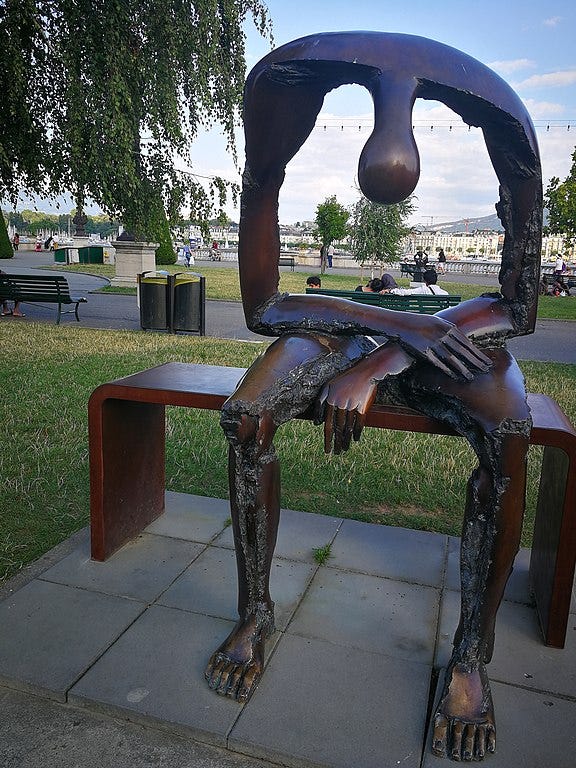
One of the many things I’ve carried with me from seminary is what I learned about the religious point of funerals. Funerals tend to be services remembering the person who died, and it is that to a point, but it isn’t the main point. The main point is to focus on the future resurrection of the dead. The late Mons Teig, my worship professor at Luther Seminary in St. Paul, MN instilled in me that funerals looked at the future resurrection by pointing towards the resurrection of Jesus.
“But in fact Christ has been raised from the dead, the first fruits of those who have died,” Paul writes to the church in Corinth. ““At the heart of the Christian religion is the history of a Jewish prophet from Nazareth who died and then, by the power of God's Spirit, conquered death. Everything in the Christian Scriptures either leads up to the account of this death and resurrection or reflects back on it,” writes theologian John Witvliet.
The hope of the resurrection has been on my mind as of late. I’m writing this on the evening of Easter Sunday as we head into the season of Eastertide. This is the day that we remember that Jesus who was executed by the state on Good Friday is raised from the dead on that Easter morning. “He has been raised, he is not here,” is what the angel says to the women in Mark’s gospel.
The Resurrection is one of those things that is hard for us modern folk to wrap our heads around. The dead don’t come back to life, we believe. It might have made sense for people who didn’t have the scientific sophistication to believe in the dead being no longer dead, but we who understand these things no better. This was definitely the thought behind some theologians back in the 1990s in the era of the Jesus Seminar where the prevailing belief was that the resurrection was really about the disciples finally understanding Jesus’ message. Of course, if that were the case you would think the writers would have just got to the point instead of dressing it all up.
But I think many of us want to believe in something more than what we see with our eyes. We want to believe in something or someone bigger than ourselves. I wonder at times if the prevalence of stories about werewolves or zombies is about believing that there is more to our lives than the material world.
The resurrection for me is about hope and that means a lot to me at this time.
On February 24, my mother died from complications of a stroke months earlier. She lived 90 long years, but that doesn’t make her passing any easier for me. Her absence is palpable. The artist Albert Gyorgy depicts this in his sculpture Melancholy. We see a man doubled over in grief, but where his chest should be is a gaping hole, a void. Losing a loved one can feel like everything has been ripped out of you leaving this huge hole.
We can’t escape grief. It is there and it reminds us of the power death has over us. But as a Christian, I also know that death is not the end. We believe in the resurrection. We trust that just as Christ rose from the dead on that Easter morning long ago, we believe that death, as real and as horrible as it is, will never have the last word. We believe in that “great gettin’ up mornin’” when the dead shall be raised and death will be no more. Easter is about hope.
This is why Professor Teig wanted us to point towards the resurrection when we preach at funerals. Yes, we remember our loved ones passing and we feel the loss, but we also preach hope that even amid tragedy the hope of God shines through to give us a bit of comfort in a time of great sorrow.
On the morning of the day before Easter, my husband woke to tell me of his dream. He dreamed of that mother was in our bedroom. She spoke clearly, with her speech no longer affected by aphasia as a result of her stroke. We both cried as we knew it was a sign that Mom was okay. It was a foretaste of the resurrection that is to come for Mom and for all of us.
Happy Easter.



